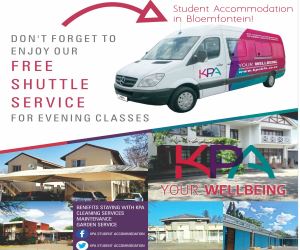You are about to start looking for a place of your own – a place that will be your home for the coming months or years.
This will be where you eat, sleep, study and relax. Depending on your specific wants and needs, there are many things to consider.
Good luck in finding your new home!
1. Your Community and Surroundings
1.1 Good Neighbour Guidelines
High numbers of our full-time undergraduates’ students live off campus, many of them in the communities surrounding the University. In addition to student housing in these communities, a variety of people live in the area: senior citizens, families with children and single professionals. Because University students constitute an important segment of the population in the surrounding area, the impact of students’ conduct in the community is of major concern.
As far as the other community members are concerned, students represent the University, even when they are off campus. We ask students to be considerate of their neighbours, especially keeping in mind that students’ schedules may differ considerably from other residents’ schedules. Also, please be aware of community issues such as noise, parking, waste management, property upkeep and alcoholic usage.
1.2 Good Neighbour Tips
When moving into a community, students must consider the needs and desired environment of those who already live there. Students are often short-term residents who move frequently and those who have chosen to live in an area long-term often feel invested in their neighbourhood and community at large. Often, interests and lifestyles of short-term and long-term residents conflict, with each party not fully understanding or investing in building a positive relationship. It is therefore important to be a goodcitizen.
Being a citizen and being a good citizen are far from the same thing: a good citizen and exhibiting signs of good citizenship are far more removed from the legal distinction of being a citizen in a society. A student must then strive for the following:
1.2.1 Community Involvement
Communities are vital to cultures and a country’s proper functioning of governance. Regardless of how modern communities function, as a student you should promote good citizenship in the communities in which you reside, resulting in evidence, local ties and bringing people together in both good and bad times. This action exhibits signs of good citizenship.
1.2.2 Volunteering
People and students who volunteer exhibit signs of good citizenship. There are many different ways of volunteering, taking reference from students involved in RAG and Give foundations. Volunteers are good citizens for the simple reason that they give back to the community without taking anything away.
Therefore good citizenship should be evident in everything you do and say. You, as student, should strive to be good citizens in your words and actions – smiling at people in the street and thanking the shopkeeper as he or she hands you your change are examples of how you can be better citizens. Above all, good citizenship is about putting the needs of the community and the needs of others above your own preferences. In summary, these are some starting points on how to be a good citizen:
-
Participate in positive activities to make your institution, your community and the world a better place.
-
Take responsibility for what goes on around you.
-
Participate in community service.
-
Help take care of the environment.
-
Be a good neighbour.
-
Treat every person with respect and dignity.
Follow the rules of your landlord, your institution and your society.
2. Relationship-Building Techniques
Show an interest in your neighbours. Make an effort to meet them and learn their names. Greet your neighbours. Find out what is important to them: learn about their families, interests and needs. Ask your neighbour for help when you need it. Likewise, be receptive to their requests for help. Strive to be an approachable and friendly person.
3. Investing in your Community
Keep your apartment, home, and property clean at all times. Trash attracts bugs and/or animals and detracts from the appearance of the community. Your neighbours have chosen this community as their home and take pride in. Keep parked cars to a minimum and be aware of the ability of others to get in and out of their driveways without their view being obstructed. Cars should be parked in the street or in your driveway – not on the lawn. Watch your noise levels. Families with children need a quiet environment in order to keep to bedtime routines. Loud music or cars, shouting individuals or increased traffic will disrupt your neighbours.
Take responsibility for your guests. Instruct them on the need for respect of your neighbour’s property and desired environment. Get involved with your block or neighbourhood association. Be an active part of the decision-making in your community.
4. Parties and Noise
One of the biggest issues that the community members have is partying and/or noise. It is usually a neighbour who calls when a party gets too loud, moves outside or becomes too crowded.
Here are some suggestions if you are planning a social event:
-
Talk to your neighbours and landlord before planning a party. Give out your phone number so they can call you if it gets too loud.
-
Do not allow outsiders on the premises and limit guests to the minimum, if you invite guests you need permission form your agent.
-
Make sure anyone consuming alcohol is 18 and older.
-
From time to time, go outside and check on the noise level.
-
Discourage guests from wandering around your home or neighbourhood.
-
Clean up any mess from your party as soon as possible.
-
Keep all gates locked, as uninvited or unwanted guests might make their appearance.
4.1 Prohibited Conduct
Any misconduct committed off campus is subject to disciplinary action.
5. Before You Rent
Questions to Consider
Always inspect the property before signing a lease or make any commitments
5.1 What kind of rental unit do you want to live in?
-
Apartment complex (a one, two or three-bedroom apartment);
-
Converted apartment in private home;
-
Room in private home;
-
Entire house.
5.2 What are your transportation needs?
-
Walking distance;
-
On a bus route or taxi route;
-
Close to work or shopping;
-
Parking.
5.3 What are your privacy needs?
-
Private bedroom;
-
Share a room;
-
Share a bathroom.
5.4 What can you afford?
-
One-bedroom apartments tend to be the most expensive.
-
The closer the rental to campus, the more expensive the rent is likely to be.
-
Calculate transportation costs when determining a budget.
5.5 What about furniture?
Most student accommodation has the necessary furniture such as:
-
Bed;
-
Desk;
-
Chair;
-
Fridge
-
Microwave (in some accommodations).
-
Stove
-
Washing machine
5.6 What are your security requirements?
-
What times are your classes (day/night)?
-
Is the route you have to walk between campus and your commune safe?
-
Is there a fence?
-
Is there security gates?
-
Is there burglar bars?
6. Things To Remember After Moving In
- Complete a thorough inventory of your apartment/room.
- Give a copy of the inspection form to agent/owner and keep a copy for your files.
- Communicate. It is important to communicate with the owner of the house/agent. Keep the lines of communication open.
- Remember to respect each other’s privacy.
- Once you have moved into your new apartment, keep in mind that agent/owner is the managing agent of the property and can enter it to make inspections or repairs or to show the property to other prospective tenants.
7. Roommate and Housemate Relationships
It is important to develop a roommate “Bill of Rights”: you, your roommate and your housemates need:
- To read and study undisturbed in your rooms;
- To sleep without interference from roommates;
- To respect each other’s personal property;
- To maintain a clean living environment;
- To allow guests to be there, as long as they respect the rights of others;
- To feel free from physical and emotional harm;
- To share the all allowed conveniences.
Whether the agent have already selected you a roommate or are in the process of finding one, it is often helpful to discuss your common concerns. You can reduce the likelihood of disagreements by coming to some basic agreements about your living arrangements.
7.1 Possible Negative Roommate/Housemate Situations
- One tenant has his or her family or friends to stay over on a continual basis, which crowds the living situation. No sleepovers are allowed at any times and a fine will be issued.
- One tenant is disruptive and the other tenant is not.
7.2 Things to Consider
- What are your study habits? Do you study with or without music? In the morning or at night?
- What are your socializing habits?
- What are your thoughts on cleanliness and neatness?
- What are your thoughts on borrowing clothes and other personal belongings from each other?
- What are your thoughts on hosting friends, boyfriends, girlfriends and guests?
- What are your thoughts on buying and sharing food?
- Do you drink? Do you smoke? To what degree can you tolerate these behaviours?
- What will be your housekeeping responsibilities?
- Finally, how will you resolve differences?
7.3 Tips on Reducing Tension between Roommates/Housemates
- Have a clear verbal (or written) understanding of each other’s lifestyle, how the commune is to be managed and what is expected of each other, especially with regards to guests and noise. Do this in writing and make sure every student in the commune is aware of that is expected from him/her.
- Have regular house meetings to discuss common house rules and discuss problems/issues among house mates.
8. Tenant Relationships
Remember that an individual entering into any kind of rental agreement should make an effort to know all rights and responsibilities. Communicate with one another. It is important to be honest with each other.
9. Repairs To Your Dwelling
Follow these steps to begin the process:
- Make a list of damages/repairs to your dwelling within 3 days of moving in. Having this documentation gives you a place to begin.
- Write your agent/owner a letter and keep a copy for yourself. Always put your requests in writing and specify how and when you would like agent/owner to respond. For example: “Please put in a request to fix the air conditioner this week and a copy of the work request to the following address. “
- Send the letter to agent/owner via mail or hand delivered at their offices.
- Allow a reasonable time for agent/owner maintenance to respond first.
10. Tenant Tips
- Always get a receipt from when you pay rent or a deposit.
- If you have a written lease, find out your rights and responsibilities.
- If something needs to be fixed, be sure of who will pay for it, because you may have to fix it or pay for it.
- Give a written notice of what needs to be repaired and wait a reasonable amount of time for a response.
11. Home Security
11.1 Exterior Doors
Exterior doors and windows should:
- Be core wood or metal;
- Fit the frame tightly (no more than 1/8 inch clearance);
- Be well-lit;
- Have hinges on the inside and not the outside;
- Not be blocked by trees or bushes;
- Have a deadbolt with a one-inch chain (chain locks and/or knob locks are not sufficient) or a security burglar door.
11.2 Sliding Glass Doors and Windows
- Windows should not be covered by trees and bushes.
- A solid strip of wood or metal in the track can reinforce sliding glass doors and windows.
- Sliding glass doors and windows have special key locks, also found in hardware stores.
11.3 Keys
- Protect yourself by never putting identification tags on your key ring or key holder. If your keys are ever lost, intruders will find you!
- Never hide a key outdoors.
11.4 Keep Your Safety in Mind
- Keep all doors and windows locked.
- Never let strangers into your home without proper identification, including maintenance, service or garden- and pool service.
- Do not panic if your home has been entered. Do not go into the unit. Contact the SAP.
- Report to agent/owner as soon as possible.
- Make sure all entranceways and stairwells in your house or apartment are well-lit.
- Do not automatically open the door when someone knocks. Ask who it is; if you have questions about the response, do not hesitate to keep the door locked.
- Be sure that your alarm system (if applicable) is working; check the batteries on a monthly basis.
- You can also arrange with agent/owner to provide you with a remote panic button, keep in mind that these costs will be for your account.
- Identify cleaning staff, maintenance, pool services and garden service, do not allow any unknown or unidentified people claiming to do any work on the premises as this is a tactic for criminals to enter your commune.
11.5 Off-Campus Housing Security Checklist
Along the exterior of the building:
- Are the building and grounds well-maintained?
- Are the entryways, sidewalks and parking areas well-lit? Are they visible from the street?
- Are exterior doors and gates kept locked?
11.6 Doorways and Windows within the Unit
- What kind of security does the unit have: knob locks, chain, deadbolt locks or peephole? Deadbolt locks provide the best security. The unit should have more than one locking system.
- Can the main entryway be easily seen from the street, even at night? Is the entryway well-lit?
- Do trees, weeds or bushes obscure doors and windows?
- Are curtains, shades or blinds provided?
- Are security bars or screens provided if it is a ground or basement unit?
- All windows that can open should have burglar bars.
11.7 Other Considerations
- Are doors to the laundry room kept locked? Are residents given keys?
- Know your roommates’/housemates’ security habits. You are only as safe as your roommates/housemates allow you to be!
- Ask about the turnover rate of residence. A high turnover rate may indicate problems with the area or unit.
- Talk with prospective neighbours. Do they feel safe?
- Call the local police and ask about the rate and types of crimes in the neighbourhood.
12. Electricity and Prepaid Electricity
Note that electricity consumption are limited per household (refer to your contract on the maximum limit per month) to an amount per student per month.
12.1 Arrangements on prepaid electricity.
One person in the commune should take responsibility for the prepaid meter and check the units on a frequent basis to ensure that you don’t run out of electricity at night or over weekends. Should this happen prepaid electricity can be bought at any PnP, most garages and Spar (almost all trading stores sells prepaid electricity).
If you buy your own electricity make sure you have the correct meter number with you as you will need the meter number before you can purchase electricity. The meter number can be found on the meter.
Notify agent/owner well in advance if your electricity units are low (DO NOT WAIT UNTILL YOUR LAST UNITS RUN OUT). This will give agent/owner sufficient time to create and send you a new electricity coupon. Bear in mind that systems could be off line, sometimes for hours or days.
Before leaving for the school holidays make sure that the units on your meter are sufficient to last for the duration of your holiday. This is very important as food in fridges can spoil or rot and on your return you will be welcomed by a terrible smell of rotten meat etc.
12.2Tips on how to save electricity.
Switch off lights that are unnecessarily on (e.g. outside lights).
Switch off all electrical appliances when leaving your room or any other room in the commune.
Limit heaters to a minimum during winter.
DO NOT LEAVE YOUR HEATER ON WHEN LEAVING YOUR ROOM.
DO NOT USE APPLIANCES LIKE STOVES AND OVENS AS A HEATER.
Do not use heaters during peak hours of the day (e.g. 7-9am and 4-8pm).
Bar heaters and oil heaters are heavy on electricity and should not be used, when purchasing a heater ask your supplier to advise you on cost effective heaters.
Limit shower/bath time to 10 minutes per person – remember your house mates also need a hot shower.
12.3 How to deal with continual power failures
Unplug all excessive electrical appliances, overloading may cause continuous power failures. Avoid too many electrical appliances in your room.
Check the main switchboard (DB board) and make sure no circuit breakers have tripped.
Check all your electrical appliances and make sure no old or faulty appliances are plugged in, as this can cause power failures. Should agent/ower send an electrician on your request to check the cause of the problem and it is found that it was caused by faulty equipment the cost will be for your account.
13. General Information
13.1 Selection of “Sub wardens”
Each commune should vote for a sub warden of their choice that will represent his/her commune and will be the communication between agent/owner and the commune, we would like to have the names and cell numbers of the sub wardens as soon as possible.
Responsibilities of sub wardens (make the necessary arrangements to get the following in order):
- Safety and security of the commune: Crime is a reality and it is of utmost importance that all outside doors and gates remain locked at ALL TIMES.
- During the holiday seasons the last person to leave the house should make sure that the commune is safely locked and alarms set (if available). Inform the office of the period that the commune will remain unoccupied /empty.
- Overall tidiness of the communal areas: The communal areas should remain in a clean and hygienic condition at all times, please ensure that the necessary roasters/timetables are set up.
- Contribution of general cleaning products: all residence should make the necessary contributions of general cleaning products for your own use, black refuse bags and globes. Should KPA provide any of these items it will be charged to the student’s accounts.
- NBNB!!! If you leave the commune for a period or holidays ensure that all perishable foods are removed from any fridges and switch off all fridges in your rooms.
13.2 Cleaning Program
All student houses/communes should have a cleaning service and a roaster of days and times when cleaning services are done and by whom (roasters can be obtained from our offices).
All students should make the following contribution to general cleaning products:
Dishwashing liquid
Dish swaps
Pot crouches
Handy Andy
Black refusal bags
Globes
If any of the above items are supplied by agent/owner cost will be charged to student accounts.
13.3 Responsibilities of Cleaning Staff
Kitchen: Clean surface area, sweep/mob floors, wash dustbin, clean stove and microwave (oven monthly), clean fridge monthly, dust*. NO DISHES WILL BE DONE BY ANY CLEANING STAFF
Lounge: Vacuum/mob and dust* (move all furniture from walls) wipe light switches.
Passage: Mob/Vacuum and dust* wipe light switches, dust*.
Bathrooms: Wash bathtub, scrub showers, clean mirrors, wash toilet, dust*
Stoop&Courtyard, outside: Sweep/mob stoop areas, clean courtyard, clean dustbins, clean drain areas, wipe/sweep windowsills.
Laundry: Clean laundry area at least every 2 weeks
Bedrooms: Enter maximum once a week. Vacuum/sweep&mob move furniture from walls, dust* (Cleaners are not allowed to enter any rooms without supervision or permission from the owner of the room, agent/owner will take no responsibility for lost items).
(*dust: all windowsills, curtain rails and light fittings)
14. Points To Remember
We want you to have a good experience at any residence. In order to ensure this, it will be helpful if you remember these points:
- You have the ability to portray a positive image for yourself and your institution.
- You are expected to act as a responsible and contributing member of your community.
- Some of your neighbours could be key people in the fields you wish to enter. Poor relations with them could hamper an otherwise positive connection with your future.
15. Bursaries
You are a BURSARY student signing a contract?
- You must have an original bursary letter from your bursary stating that they will pay for you (on bursary letter it must state how much they will pay for you for the year).
- There has to be a contact number for your bursary as well as a stamp on it.
- You have to bring your latest account from the university if you are not a first year
- You have to bring your latest results from the university.
- A parent must sign the contract and provide a proof income (pay slip or 3 months bank statements)
- Everything the bursary does not pay for the student will be held accountablefor NB!!!!!!!!!!!
- Make sure what the maximum amount is that your bursary will pay for accommodation before signing the contract. Do not exceed the maximum amount unless a working parent can pay the difference.




About Us
You are about to start looking for a place of your own – a place that will be your home for the coming months or years. This will be where you eat, sleep, study and relax. Depending on your specific wants and needs, there are many things to consider. Good luck in finding your new home!
Latest News
Properties
Contact Us
245 President Paul Kruger Avenue, Universitas,
BLOEMFONTEIN, 9301
Phone: 061 330 2785




